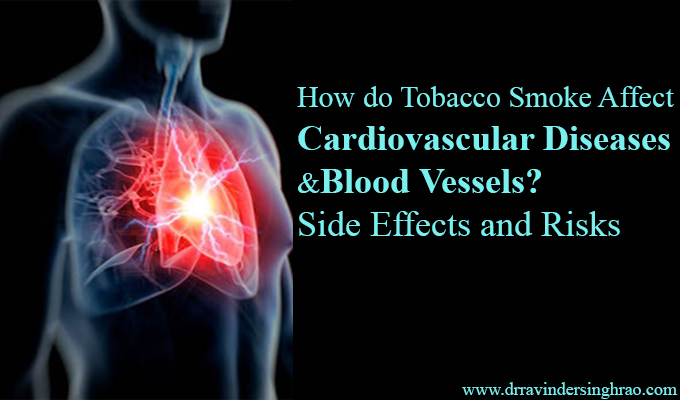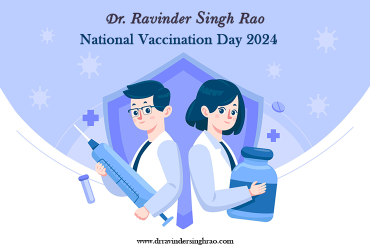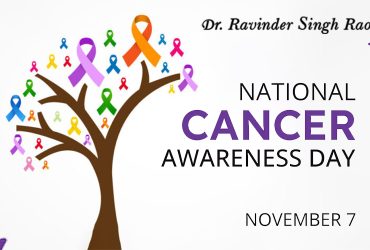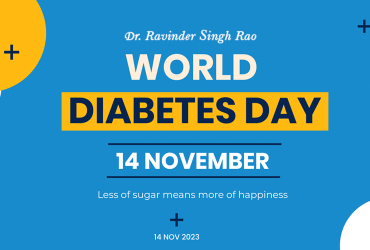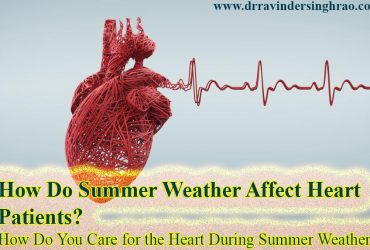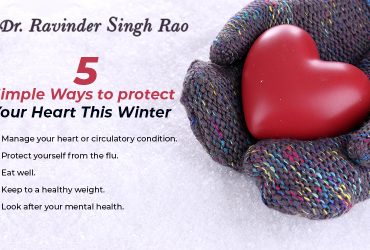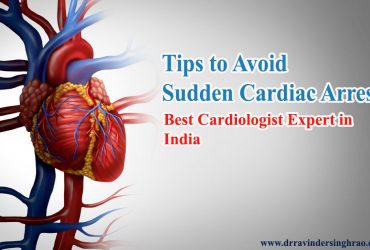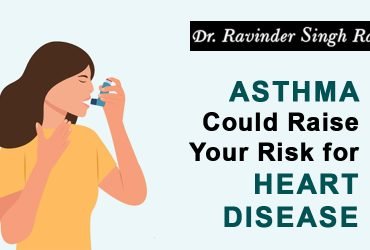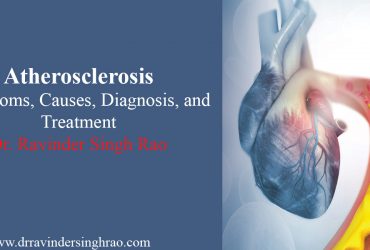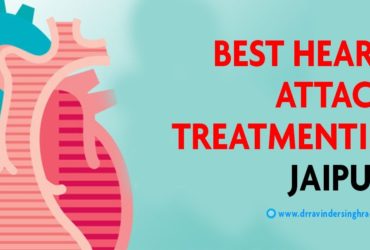Cigarettes and cigarette smoke contain many chemicals that can damage the blood vessels and heart. Your cardiovascular system is affected by two chemicals, nicotine and carbon monoxide. However, Read this article to know more How do Tobacco Smoke Affect Cardiovascular Diseases and Blood Vessels? With Dr. Ravinder Singh Rao.
You are more likely to develop heart disease and other forms of cardiovascular disease if you’re exposed to nicotine and carbon monoxide. Each year, smoking accounts for about 1 out of 5 deaths in the country. Among the preventable causes of death and illness in the country, smoking leads the way.
There are numerous health hazards associated with smoking, including damage to the heart, blood vessels, lungs, eyes, mouth, reproductive organs, bones, bladder, and digestive organs.
How do Tobacco Affect Cardiovascular Diseases and Blood Vessels? Side Effects and Risks- Dr. Ravinder Singh Rao
There is a strong link between smoking and heart disease. Your heart and blood vessels are damaged by the chemicals you inhale when you smoke, making you more likely to develop atherosclerosis or plaque accumulation in arteries.
The blood vessels and heart can be damaged by any amount of smoking, even occasional smoking. For some people, especially those who use birth control pills or who have diabetes, smoking poses an even greater risk, says heart valve expert.
Smoking increases your heart disease risk even more if you have other heart disease risk factors such as high cholesterol, high blood pressure, and overweight or obesity. Peripheral artery disease (PAD) is another Side effect and risk associated with smoking.
PDA is caused by plaque buildup in the arteries carrying blood to your head, organs, arms, and legs. Heart attacks, strokes, and coronary heart disease are more likely to occur in people with PAD.
Smoke breathed out by smokers or smoke produced by cigarettes, cigars, pipes, or other tobacco products is secondhand smoke. People who don’t smoke can have their hearts and blood vessels damaged in the same way that smokers do.
What makes you want to stop smoking?
According to the Heart Expert, quitting smoking reduces the risk of heart disease, repeat heart attacks, and death from heart disease by half. Many contributors to heart attacks can be managed by quitting smoking. There are several of them, such as atherosclerosis and blood clots.
Mental preparation and relatively low-stress levels are prerequisites for success. Physically, you need to exercise regularly and sleep enough. Furthermore, quitting nicotine requires overcoming two obstacles: a physical addiction and a habit. These tips from the best Cardiologist can help users quit smoking:
- Consider your reasons for quitting.
- Choose a time when you won’t be stress.
- Family, friends, and co-workers can provide support and encouragement.
- To relieve stress and improve your health, do a little exercise or activity each day.
- Make sure you get plenty of sleep.
- Balance your diet.
- Join a cessation program or support group.
- Replace your smoking activities with healthier ones.
Prevention of Smoking
It is possible for nicotine replacement products to help break the smoking habit in some cases. In addition to nicotine replacement products, smokers can still satisfy their nicotine craving with these products. Cigarettes emit tars and toxic gases, but nicotine replacement products do not.
If you are pregnant or nursing or have any other medical conditions, you should consult Dr. Ravindra Rao- Angioplasty Expert before using any nicotine replacement products. Among the options available are:
- Chewing gum containing nicotine. Gum releases a small amount of nicotine to alleviate the withdrawal symptoms of nicotine.
- Patches for nicotine. The patch releases a steady dose of nicotine every day once it is apply to the upper body.
- Inhaler or nasal spray for nicotine. To reduce withdrawal symptoms, this prescription nicotine replacement product releases nicotine (a doctor’s approval is require before use).
- Avoiding secondhand smoke and quitting smoking
Smoking is one of the best ways to reduce your heart disease risk.
- Never start smoking.
- Quit smoking if you already do. Whether you have smoked for a short time or for a long time, quitting will benefit you.
- Don’t smoke secondhand. Smoking is not allow in public places. However, don’t let your friends and family smoke in the house and in the car.
By quitting smoking, you lower your risk of developing heart disease and of dying from it. Quitting smoking reduces your chances of developing atherosclerosis and blood clots as well over time. You are less likely to die from cardiac death, heart attacks, and other chronic diseases, if you stop smoking if you already have heart disease. Therefore, a heart-healthy lifestyle includes not smoking, healthy eating, maintaining a healthy weight, managing stress, and increasing physical activity.
Conclusion
Moreover, smoking cigarettes has many heart-related health risks. It can cause hypertension, arrhythmia, and atherosclerosis. The best way to prevent these conditions is to avoid or quit smoking. If you need help quitting smoking, consult with Structural Heart Disease Expert in India.
Above all, they can help you create a smoking cessation and improve your heart health. If you are diagnose with tobacco affects cardiovascular disease and blood vessels then consult Dr. Ravinder Singh Rao one of the specialists in Heart Disease Treatment.
Hence, Book an appointment today or call us Emergency Line +91-78917915861. In short, get more information about How do Tobacco Smoke Affect Cardiovascular Diseases and Blood Vessels? Side Effects and Risks

